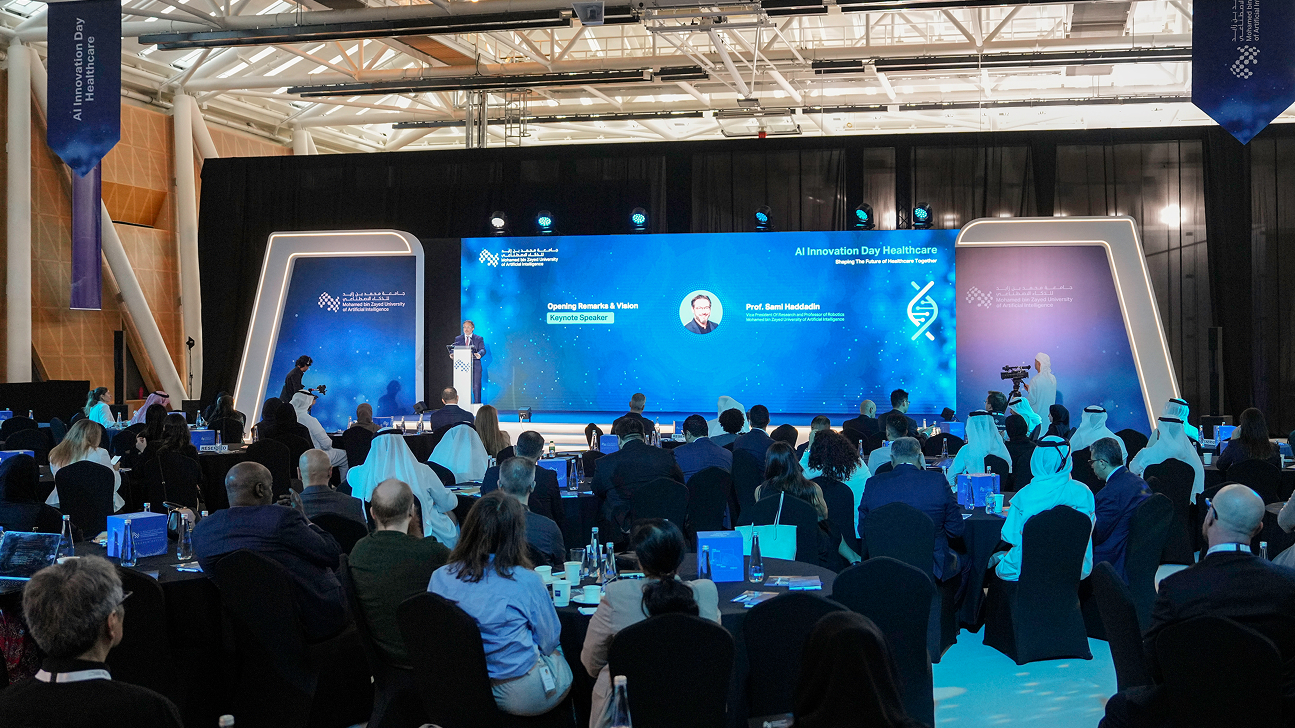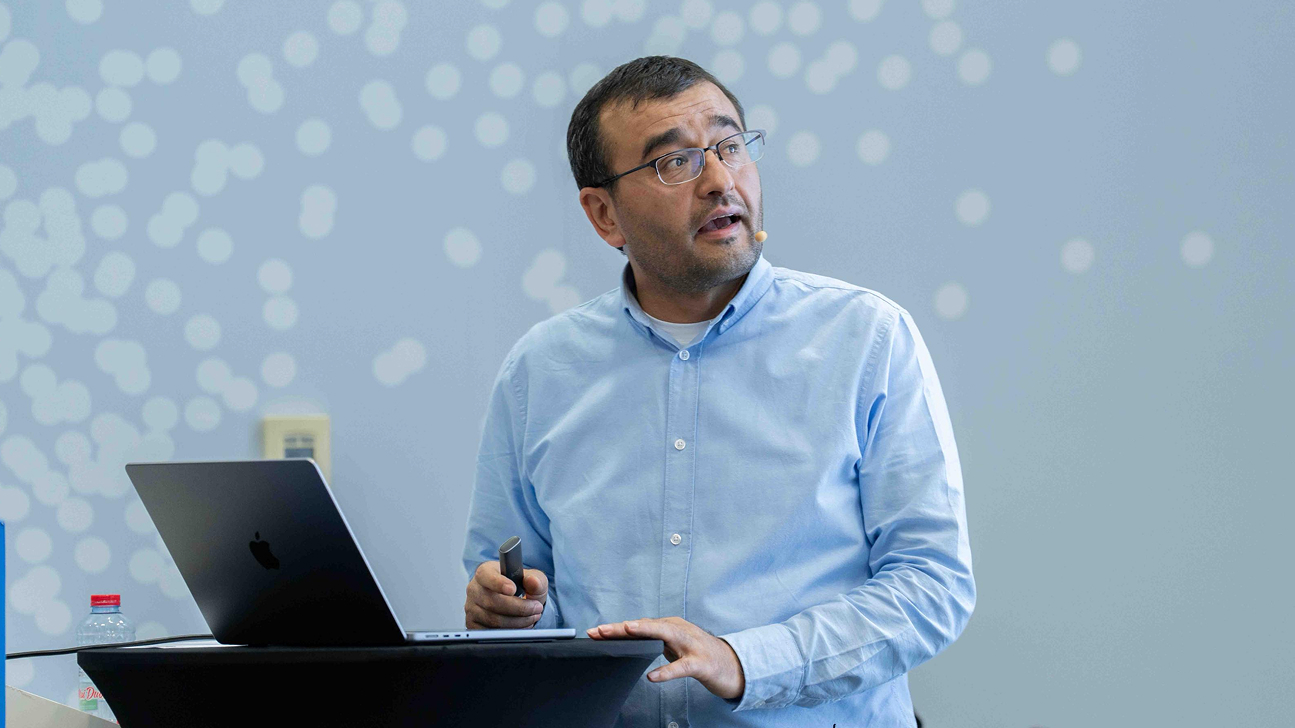Aziz Khan
Assistant Professor of Computational Biology
Research Interests
Professor Khan’s research bridges computational biology, (epi)genomics, machine learning, and software engineering to understand gene regulation in diseases such as cancer. His lab develops cutting-edge open-source tools, methods, and resources to analyze, visualize, and interpret large-scale multi-omic and multi-ethnic data, applying these to decipher the role of the non-coding genome in advancing precision oncology and medicine. Email

- Postdoctoral Fellow, NCMM, University of Oslo, Norway
- Ph.D. in Bioinformatics, Tsinghua University, China
- M.Sc. in Computer Science, National University of Computer and Emerging Sciences, Pakistan
- M.Sc. in Information Technology, Quaid-i-Azam University, Pakistan
- B.Sc. in Mathematics and Physics, Forman Christian College, Pakistan
- Exchange Grant, Life Science Alliance, EMBL and Stanford University (2023)
- Staff Affiliate, Stanford Data Science - Center for Open and Reproducible Science (SDS-CORES) (2024-2025)
- STEM Teaching Certificate, CIRTL, Stanford University, USA (2024)
- PMP Certification, Project Management Institute (2024)
- Certified Carpentries Instructor, The Carpentries (2023)
- Academic Advisor, Namal University, Pakistan (2021 – 2023)
- Erasmus+ Mobility Grant, European Commission (2019)
- Program Review Committee, The Bioinformatics Open Source Conference (2020-2024)
- Open Bioinformatics Foundation (OBF) Travel Fellowship (2019)
- CSC full PhD Scholarship, Chinese Scholarship Council (2012 – 2016)
- Outstanding Doctoral Dissertation (runner-up), Tsinghua University, China (2016)
- Biocuration Travel Fellowship, Biocuration Conferences (2019, 2018)
- TWAS BioVision.Next Fellowships, The World Academy of Sciences (2013, 2014)
- Research Travel Grant, Higher Education Commission (HEC), Pakistan (2012, 2016)
- Community Ambassador, ASAPbio (2020 – 2022)
- Community Ambassador, eLife (2018 – 2020)
- Co-Chair, Web Committee, ISCB Student Council (2016 – 2019)
- Organizer, Tsinghua ENCODE Journal Club (2013 – 2014)
Professor Khan’s research bridges computational biology, (epi)genomics, machine learning, and software engineering to understand gene regulation in diseases such as cancer. His lab pioneers cutting-edge open-source tools, methods, and infrastructure to analyze, visualize, and interpret multi-omic, multi-model, and multi-ethnic data, deciphering the non-coding genome to empower precision oncology and medicine.
Professor Khan has published over 30 high-impact peer-reviewed research papers in leading journals across diverse topics from genomics, epigenomic, machine learning, cancer, science policy, with over 8,800 citations.
- Houlahan KE*, Mangiante L*, Sotomayor-Vivas C*, Adimoelja A*, Park S, Khan A, Pribus S, Ma Z, Caswell-Jin J, Curtis C. Complex rearrangements fuel ER+ and HER2+ breast tumors, Nature DOI: 10.1038/s41586-024-08377-x
- Houlahan KE, Khan A, Greenwald NF, Sotomayor-Vivas C, West RB, Angelo M, Curtis C. Germline-mediated immunoediting sculpts breast cancer subtypes and metastatic proclivity, Science 2024; 384(6699), DOI: 10.1126/science.adh8697
- Karlsson K, Przybilla MJ, Kotler E, Khan A, [13 co-authors], Curtis C. Deterministic evolution and stringent selection during pre-neoplasia, Nature 2023; 618:383–393
- Maeser N*, Khan A*, Sun R. Somatic variant detection from multi-sampled genomic sequencing data of tumor specimens using the ith.Variant pipeline, STAR Protocols. 2022; 4(1):101927
- Strand SH, [7 co-authors], Khan A, [32 co-authors], Curtis C, Tibshirani R, Angelo RM, Hall A, Owzar K, Polyak K, Maley C, Marks JR, Colditz GA, Hwang ES, West RB. Molecular classification and biomarkers of clinical outcome in breast ductal carcinoma in situ: Analysis of TBCRC 038 and RAHBT cohorts, Cancer Cell. 2022; DOI: 10.1016/j.ccell.2022.10.021
- Sarabipour S, Khan A et al. Changing scientific meetings for the better. Nature Humman Behaviour 2021; 5:296-300.
- Khan A, Riudavets Puig R, Boddie P, Mathelier A. BiasAway: command-line and web server to generate nucleotide composition matched DNA background sequences. Bioinformatics 2021; 37(11):1607-1609
- Khan A*, Fornes O*, Stigliani A* et al. JASPAR 2018: update of the open-access database of transcription factor binding profiles and its web framework. Nucleic Acids Res 2018; 46(D1):D260-D26
- Khan A†, Mathelier A†. Intervene: a tool for intersection and visualization of multiple gene or genomic region sets. BMC Bioinformatics 2017;18:287
Contact faculty affairs
Interested in working with
our renowned faculty?
Fill out the below form and we will get back to you.

